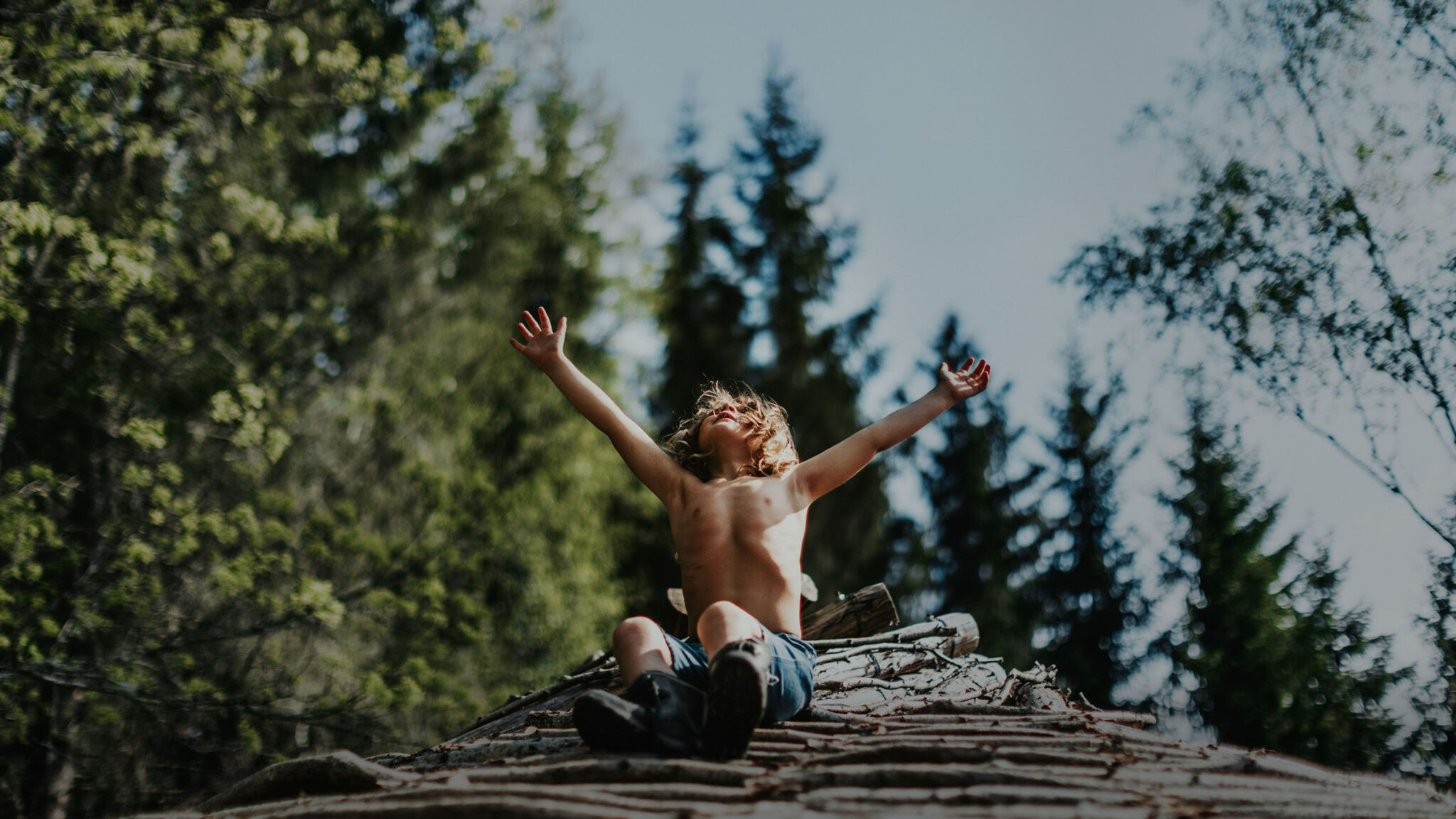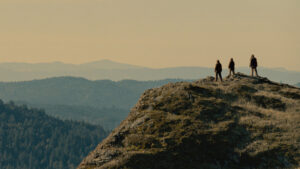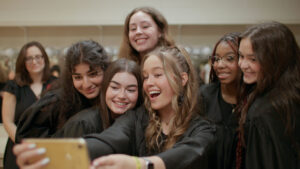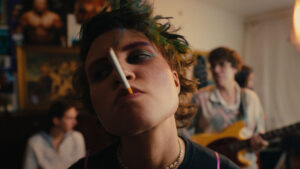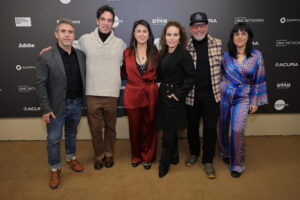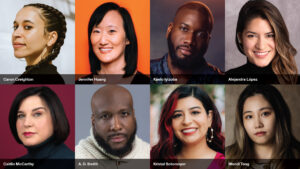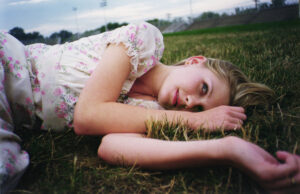By Lucy Spicer
One of the most exciting things about the Sundance Film Festival is having a front-row seat for the bright future of independent filmmaking. While we can learn a lot about the filmmakers from the 2024 Sundance Film Festival through the art that these storytellers share with us, there’s always more we can learn about them as people. This year, we decided to get to the bottom of those artistic wells with our ongoing series: Give Me the Backstory!
When filmmaker Silje Evensmo Jacobsen stumbled upon a blog by a Norwegian photographer whose family had opted for an unconventional lifestyle on an isolated farm, she was hooked immediately. “Maria [Payne], an amazing photographer from Norway, together with her husband, Nik, and their kids, were on a mission: breaking free from the everyday grind,” recalls Jacobsen. “The way they redefined their lives based on what they wanted, not what society expected, was seriously inspiring. It made me think about my own life and beliefs and sparked this idea to tell their story through a film.”
That idea would become A New Kind of Wilderness, which premiered in the World Cinema Documentary Competition at the 2024 Sundance Film Festival. Jacobsen’s second feature introduces the world to the Paynes, whose self-sufficient lifestyle is centered on nature and spending time together as a family. The director skillfully navigates a vérité approach while maintaining a deep respect for the Payne family, who experience a tragedy that forces them to reexamine certain aspects of their lives as the documentary unfolds. The film’s dedication to capturing the vulnerability and humanity of this family won it the World Cinema Documentary Grand Jury Prize at the Festival.
Jacobsen also sees the film as a quiet call to action. “In today’s fast-paced world, surrounded by technology, institutional norms, overconsumption, and always the stress of overachieving and wanting more, many of us are silently longing to hit the brakes. We crave moments with our children, a return to nature, and a simpler way of life,” she explains. “This story can inspire us to make a conscious choice on how we want to live our lives and remind us to find meaning in life’s simple joys.”
Learn more about Jacobsen below, including how the director got into filmmaking and which scene from A New Kind of Wilderness she found particularly difficult to cut.
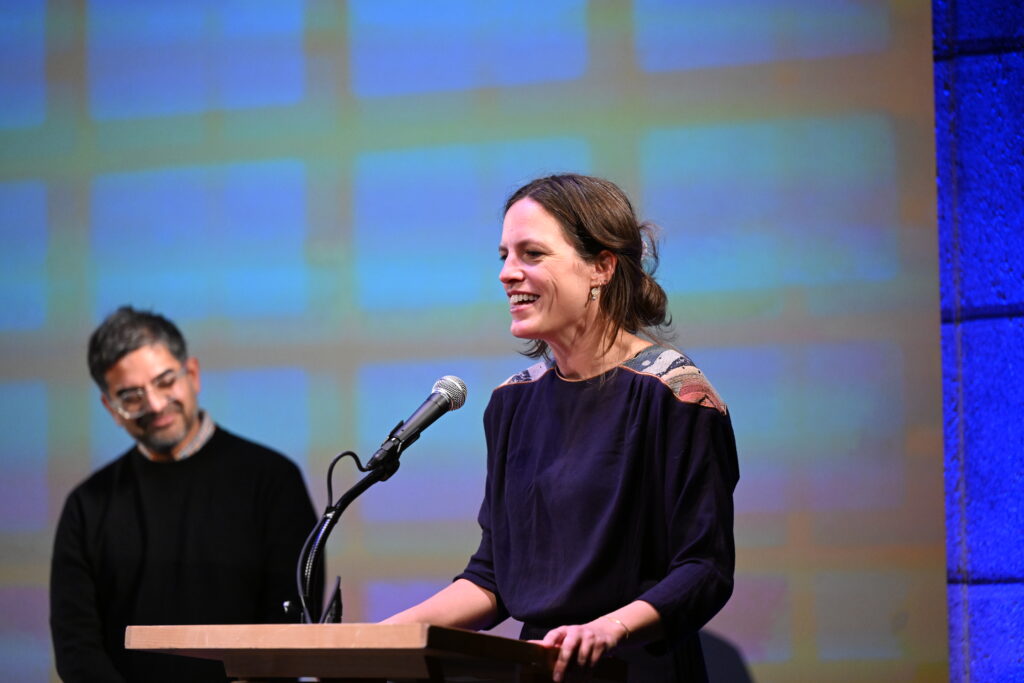
Describe who you want A New Kind of Wilderness to reach.
I want the film to connect with a broad audience, particularly modern families. My wish is that parents will engage and reflect on it from their own lives and experiences. I also hope it will provide a deeper meaning for those who have lost a loved one, and that it can bring a sense of comfort and understanding to people navigating through challenging times.
Your favorite part of making the film? Memories from the process?
I’d say my favorite part was capturing those moments when the kids were completely immersed in nature, forgetting my presence behind the camera. One of those memories is watching 5-year-old Wolfie fishing on his own, then slaying and grilling the catch, and finally eating the whole thing with pure delight. It was taken out of the film during the final edit, which was a darling being killed.
What was a big challenge you faced while making this film?
It was challenging not to get too emotionally involved. Staying observational without intervening or imposing my own ideas on how they should move on with their life. Filming children experiencing grief was also something new to me, and knowing when it was appropriate to film or when to hold back was sometimes difficult to navigate.
Tell us why and how you got into filmmaking.
From a young age, I’ve always envisioned stories in a cinematic way. Books, tales, everything seemed like a movie playing in my mind. As I grew older, I found myself drawn to real-life stories — the present kind, where you’re part of a journey with no clear ending. I realized life isn’t just about good versus evil or “us against them.” It’s far more intricate. I got passionate about sharing these smaller, more complex human stories that offer insights into what it means to be fully human.
Why is filmmaking important to you? Why is it important to the world?
To me, documentary filmmaking isn’t just about storytelling; it’s a way to dive into deeper tales that give us insights, make us reflect, and broaden our perspectives. But it’s not just about telling any story. It’s such a privilege to be able to choose which stories get shared and how they’re told. It’s a powerful tool, and it comes with a huge responsibility.
What is something that all filmmakers should keep in mind in order to become better cinematic storytellers?
It’s all about visualizing the story from start to finish. I never focus on interviews or voiceovers, but more on how to visualize what I want to come out of a scene or what I see from a person. It’s like having a mental blueprint for the film, guiding me on where to point the camera and what to capture. Even in character-driven documentaries where things seldom can be scripted, this approach helps me shape the narrative in my mind.
Films are lasting artistic legacies; what do you want yours to say?
Make a conscious choice about how you want to live your life. Be present, be with your children and your dearest ones. Be in nature with them, teach them (and learn yourself) about nature, the seasons, and the cycle of life. We don’t know how much time we have together on Earth. And when we lose our loved ones, we must see each other.
What three things do you always have in your refrigerator?
Milk, yogurt, and brown cheese. Stereotypical Norwegian.
What was the last album you listened to?
The LP Blue by Joni Mitchell. Actually listening to the song “River” in this exact moment.
Early bird or night owl?
Something in between. I don’t fit in a (bird) box.
Who was the first person you told when you learned you got into the Sundance Film Festival?
My 7-year-old daughter. We were in bed, scrolling through her baby pictures on my phone when the notification popped up. I went nuts with excitement, babbling about Sundance. She got all teary-eyed, saying, “I don’t want you to go to America and leave me!”
What’s your favorite film that has come from the Sundance Institute or Festival?
Of course, Captain Fantastic. And Honeyland, that film sparked something deep within me. And it still does.

